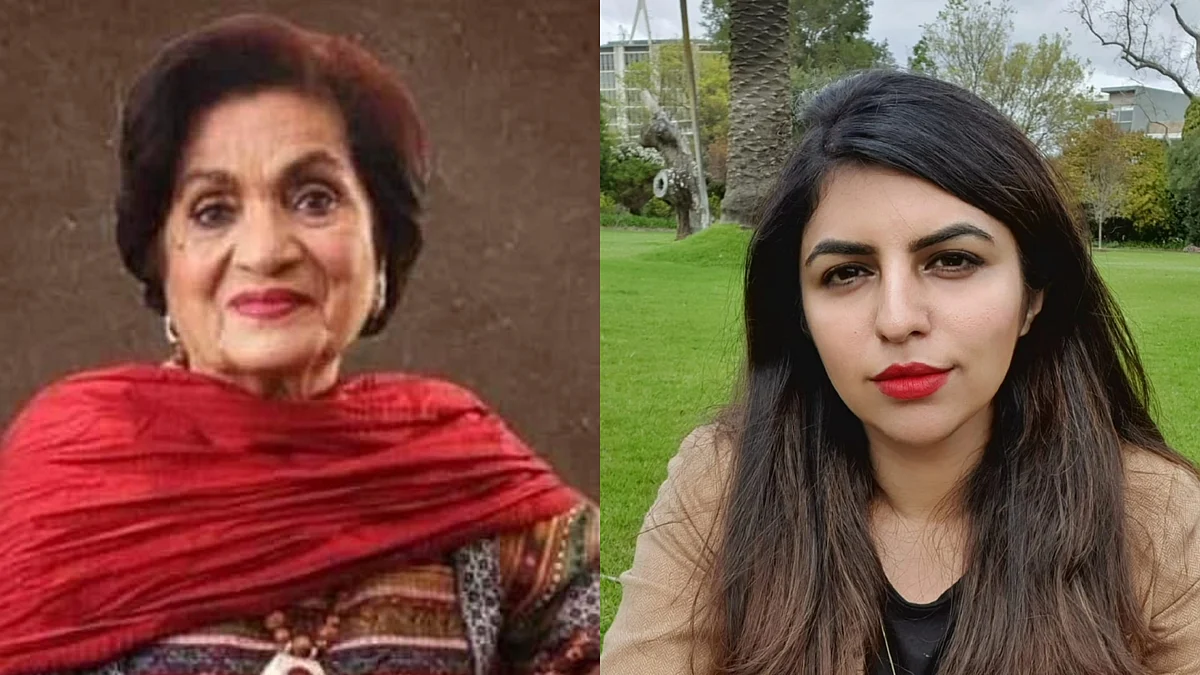She dared to be different and made a difference to women in both India and Pakistan
Haseena Moin, born in Kanpur and loved both in India and Pakistan passed away on Friday. She had penned dialogues for Raj Kapoor’s blockbuster “Henna” but stopped writing, refusing to bow to commerce

In the subcontinent we have trouble calling people by their first names, unlike Americans. We like associating even the ones we are not related to by blood with our own family and those we love always go by a suffix, so did Haseena Moin. She was Aapa (the elder sister) to several generations of people in Pakistan.
Films and television soap operas are not merely a form of entertainment in the subcontinent but a part of our real life. Our behaviour, perspectives and even real-life decisions are often influenced by the magic of big and small screen. Like films in India, drama has been the foundation of not only the entertainment industry but also society. The way no Pakistani wedding is complete without Bollywood tarka, many Indian households like passing a day or more without watching Pakistani drama.
When borders separated us, films and drama united us. Haseena Aapa’s death, therefore, is a mutual loss. These days when the Pakistani drama industry is heavily criticised for its regressive approach towards the portrayal of women as they are mostly presented as damsels in distress waiting for a knight in shining armour to rescue them, it is nostalgic to remember how different it was when Haseena Moin ruled the television industry.
Starting her writing career with children's monthly Bhaijan in her teens, the natural progression for her was the radio where she wrote skits for a weekly program Studio Number Nau. Her debut project with TV was a long play Happy Eid Mubarak and since then there was no looking back.
Her play Shehzori, which was an adaptation of Ismat Chughtai’s work, achieved ground-breaking success across the country. She is also credited for writing the first original script Kiran Kahani which gave birth to an era we still cherish. She was the force that completely revolutionised the way women were perceived in society.
Our films and television have always placed a weak woman sinking in misery on a pedestal, believing that her only virtue worth respect is a stiff upper lip and teary eyes. She is never the centre of any story even if it is her own, always supporting the lives of those around her with no personality of her own.
Haseena Aapa dared to be different and created stories that centred around strong female protagonists, independent women with a mind of their own, who knew how to live life to the fullest no matter how harsh the circumstances were. Her heroines defined the truly modern woman in the 80s, who knew exactly what they wanted from life. Not only the heroine, but the supporting cast also had a mind of their own and left no stone unturned to convey Haseena Aapa’s feminist vision effectively to the masses.
Be it Zoya (Marina Khan) of Dhoop Kinare or Sana (Shehnaz Sheikh) of Ankahi, Haseena Aapa’s stories were centred around women who were determined to bring a change in the lives of everyone around them without compromising on their own happiness and expectations from life. People saw themselves in her stories and characters or at least they wanted to. No wonder roads throughout Pakistan would empty out at 8 pm when her plays were aired on PTV.
An interesting indicator of the impact of her TV plays on the society was that many girls of my generation were named after her heroines. Saneeya, Sana and Zoya were among the most popular names of our times, challenging times for creativity and the entertainment industry which had to cope with military dictatorship and clampdown on freedom of thought.
Teaming up with the ace directors like Shahzad Khalil and Sahira Kazmi, Haseena Aapa was a creative genius in sending her message across in light-hearted ways that unerringly overcame strict censorship. She not only helped Raj Kapoor with dialogues for his film Henna but was also the one who helped him find Zeba Bakhtiar as the main lead of the film. She wrote a play titled Kashmakash for Doordarshan as well.
She however stopped writing many years before her death, refusing to focus more on TRPs and creating stories that normalised domestic violence and misery. She refused to bow down to this wave of commercialism and stood her ground.
As I mourn the passing of one of the most loved dramatists of our times, I wonder what it would have been like if she had continued to create content shaking the shackles of patriarchy, to instill hope for a society where women would not just survive but thrive.
Haseena Aapa is gone and is probably having a blast with Shahzad Khalil, having an argument over the storyline of her new play up there in the clouds. May you rise and shine wherever you are, Haseena Aapa.
(Saadia Ahmed is a digital journalist, writer and storyteller from Pakistan who is now based in Australia)
Follow us on: Facebook, Twitter, Google News, Instagram
Join our official telegram channel (@nationalherald) and stay updated with the latest headlines